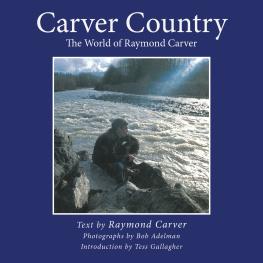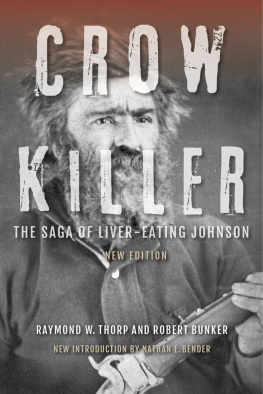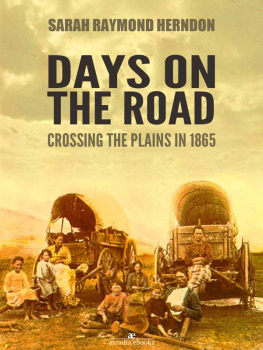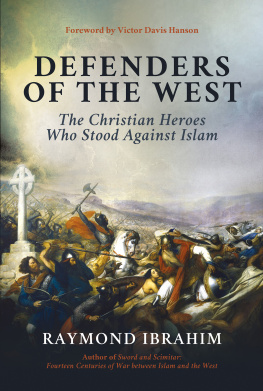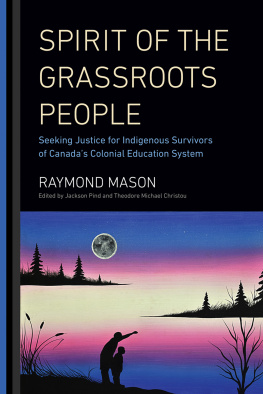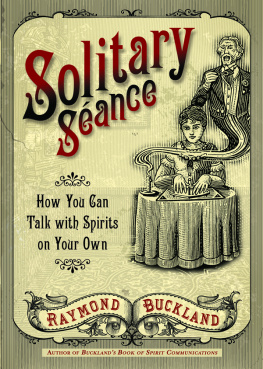Burtyrki Books 2020, all rights reserved. No part of this publication may be reproduced, stored in a retrieval system or transmitted by any means, electrical, mechanical or otherwise without the written permission of the copyright holder.
Publishers Note
Although in most cases we have retained the Authors original spelling and grammar to authentically reproduce the work of the Author and the original intent of such material, some additional notes and clarifications have been added for the modern readers benefit.
We have also made every effort to include all maps and illustrations of the original edition the limitations of formatting do not allow of including larger maps, we will upload as many of these maps as possible.
SPIRIT GUN OF THE WEST
the story of
Doc W. F. Carver
Plainsman, trapper, buffalo hunter,
Medicine Chief of the Santee Sioux,
Worlds champion marksman, and
Originator of the American
Wild West Show
By
RAYMOND W. THORP
Author of Bowie Knife
TABLE OF CONTENTS
Contents
TABLE OF CONTENTS
REQUEST FROM THE PUBLISHER
Dedication
To My Wife
DOROTHY
Who, during long, hot, summer months transcribed more than a quarter million words for this biography of her friend and mine.
Illustrations
DOC W. F. CARVER, ABOUT 1879
TEXAS JACK OMOHUNDRO
HICKOK, OMOHUNDRO, AND CODY
JOHN Y. NELSON
CARVER AND JIM WILLIAMS
SHOOTING PROGRAM, POTSDAM, GERMANY
DOC CARVER AND ADAM BOGARDUS
HOTEL RECEIPT SHOWING CARVERS PAYMENT
ADAM FOREPAUGHS SHOW ADVERTISEMENT
PROGRAM COVER, WARSAW, 1890
WILD AMERICA TROUPE, ST. PETERSBURG, 1890
ONE OF THE DIVING HORSES
LAST PICTURE OF CARVER, 1927
CARVER AND FRIENDS AT NORFOLK, NEBRASKA, 1927
CARVERS SADDLE
Foreword
Long, long ago, when I was a poor little native-born American boy playing on the banks of the Big Muddy, my family owned a large original picture of Buffalo Bill which hung on the kitchen wall. I admired it greatly; one day I threw aside my Nick Carter novel and said to my Mother: Buffalo Bill must be the greatest shot in the world. It stunned me when she replied: Doctor Carver was the greatest, but I think hes dead now. I attributed this statement to womens ignorance of such matters; I had never heard of Doctor Carver, and refrained from asking her any more questions along this line.
Peculiarly enough, a quarter of a century later Doc wrote to me, saying: Thorp, I wish you had known me all the way through; I would have made your everlasting fortune. Later he wrote to a mutual friend, saying: You write that you are a friend of Mr. Thorps, and that means that you and I will be friends, for I think Thorp is one of the right kind, and plays fair with everybody.
So I say now, thirty years later: Thanks, Doc, and we should settle this shooting question here and now. All shooters of past and present fade into insignificance before your great records, and these pages will bring a remembrance of you back to many graybeards, and will teach those younger the glories of the Golden Age of America.
Preface
Doc W. F. Carver came from the very roots of the first American stock. He was a direct lineal descendant of Governor Carver, who stepped from the Mayflower to Plymouth Rock; of Jonathan Carver, the first white pioneer of Minnesota; and of Fred Carver, the famous Indian scout, who was killed in the Spirit Lake massacre of 1845. Doc was in possession of the gold-headed cane upon which the Governor leaned as he stood on the Rock, and upon which was engraved the family motto-the greatest truth connected with the ancient Anglo-Saxon race-a truth which will endure until the archangel blows his trumpet. That motto and that truth is: Blood Will Tell.
Docs life began in the era of American pioneering to the West. As a youth he lived with the Santee Sioux, who had known and honored his grandfather, Jonathan Carver. From the plains of Illinois and the forests of Minnesota he graduated to the beautiful prairies of Nebraska where he became supreme as a horseback-riding buffalo hunter, and came to count among his close friends the mountain men and plainsmen of whom James B. Hickok, John Y. Nelson, Texas Jack, and the boastful Buffalo Bill, were but a few.
To California, at thirty-five years of age, was Carvers next move. Here he discovered in his reading of sporting magazines that men were making fortunes by shootingmen who were not good shots! His innate confidence assured him that he was the best shot in the world, and he began the work of proving to the world that he was not only the best marksman, but that he was to become one of the worlds outstanding showmen.
But what sort of man was Doc? He was a modest man. He never boasted. He made statements concerning his abilities that shocked people; and then made good on all of them. He was a sportsman. When opponents grumbled about his charmed guns, he traded with them, and then went on to beat the grumblers.
He was thoroughly honest, and could not understand skulduggery. In many cases, as will be seen, matches were rigged against him, with hardly a chance of his winning. He won in each instance, and could hardly believe it when told that he had been double-crossed.
He was a kindly man. When he shot against Gove in Denver, he using a rifle and Gove a shotgun, and beating the seventy-year-old fellow, someone told him that the latter was a poor man. Doc refused to take the money, called it a tie, and paid Gove a compliment, saying: Mr. Gove is a wonderful shot; even at his age, I believe he can beat the best young shots in the country.
Following Docs performance at Niblos Garden, where he showed free to ten thousand street urchins, the sight of the happy, screaming youngsters made him cry. This big plainsman, six feet four inches in height, weighing 265 pounds, had never before known the misery contained in a big city.
Such was Doc W. F. Carver. The surest shot that ever lived, he was undoubtedly a great American, and certainly one of the greatest figures that ever came out of the West.
Acknowledgments to Charles R. Nordin
Charles R. Nordin, of Omaha, was a cowboy on the Nebraska plains in his youth. He was perhaps Doc W. F. Carvers closest friend, before the death of this man whose amazing marksmanship won for him the Indian names of Spirit Gun, and Evil Spirit.
Many times Doc stayed with Charles when he was in Omaha, and many were the recitals he gave to Nordin of the early days of the West. Charles said of him: The most striking thing about Doc was the kindly way in which he spoke of his dead mother. You see, she had lived with him on the plains for a time, after Docs father had died.
To Charles Nordin went all of Docs trophies and guns; the fabulous saddle, covered with coins shot in every part of the worldand for which Teddy Roosevelt offered ten thousand dollars; to Charles also went Docs sixteen priceless scrapbooks which contain the thousands of newspaper clippings, the programs, showbills, letters from kings, emperors and princes, records of shooting championships and of other events which made up the life of this extraordinary man.



